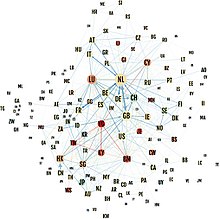Tax haven concerns

IFSC growth is closely related to concern regarding tax issues, and Ireland as a tax haven, estimated in 2018 by academics to be the world's largest tax haven. The role that the major IFSC accounting and IFSC law firms have played in creating Irish tax haven-type legal structures, including Double Irish, Single malt, and Capital allowances for intangible assets (CAIA) BEPS tools, as well as Section 110 SPV, QIAIF and ICAV zero-tax legal structures, has been chronicled.
For example, PwC Ireland, one of the largest professional services firms in the IFSC, was identified in 2013 by Bloomberg as the "great architect" of the Double Irish arrangement, the largest known legal tax avoidance structure in history, responsible shielding over US$100 billion annually from taxation.
In addition, Matheson, who state that they have the largest corporate tax group of all IFSC law firms, was identified in 2013 by the Wall Street Journal as the headquarters of 125 major US multi-nationals seeking to benefit from the Irish tax system, and avoid US corporate taxes.
The IFSC's reputation as a global centre of tax haven activities, has seen several of the "offshore magic circle" law firms set up in offices in the IFSC.
IFSC firms have also been associated with helping foreign firms avoid Irish taxes on Irish assets. In 2016, it was discovered US distressed debt funds used IFSC Section 110 securitization vehicles to avoid Irish taxes on their Irish investments (see vulture fund Irish tax avoidance), supported by IFSC law and accounting firms, It was estimated these US distressed funds would avoid €20 billion in Irish taxes from 2016 to 2026 on circa €40 billion of Irish investments made from 2012 to 2016 (which represented circa €80 billion in headline Irish loan balances). Matheson was exposed as using children's charities to hide their client's Section 110 SPVs.
The IFSC's growth has led to Ireland's rise in global league tables of tax havens, and seen Ireland "black listed" by countries such as Brazil.
There is evidence IFSC SPVs are used for circumvention of global sanctions, tax avoidance, and money laundering.
Research in 2017–2018 by Trinity College Dublin finance Professor Jim Stewart, and Cillian Doyle, showed many IFSC SPVs are unregulated brass plate structures attracting little oversight by the Revenue Commissioners or Central Bank of Ireland, and with local individuals holding hundreds of SPV directorships. The International Monetary Fund ("IMF") has noted the same concern regarding governance of IFSC SPVs (and FCVs). In 2018, a former Deputy Governor of the Central Bank of Ireland stated that the risks from abuses of IFSC SPVs was not fully appreciated by the Irish Government.
Comments
Post a Comment